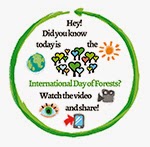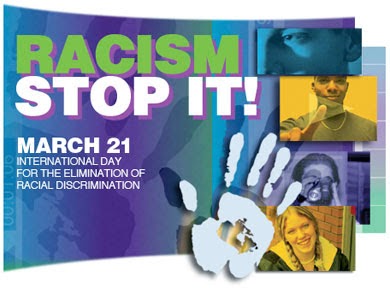Всемирных метеорологических дней, 23 марта.
World Meteorological Day, March 23.
United Nations Secretary-general message on the World Meteorological Day 2015, March 23rd.
Message from M. Jarraud,Secretary-General of the World Meteorological OrganizationOn the occasion of “World Meteorological Day 2015 – Climate knowledge for climate action”
Forum : World Meteorological Day - 23 March
Download the brochure in: English
Events : In March 2015, a new blueprint for action on disaster risk reduction, replacing the first Hyogo Framework for Action (HFA), will be adopted in Sendai, Japan, at the Third UN World Conference on Disaster Risk Reduction. In December, the United Nations Framework Convention for Climate Change (UNFCCC) aims to achieve a new universal agreement on climate. Its Green Climate Fund (GCF) will support projects, programmes, policies and other activities in developing countries toward adaptation and mitigation to counter climate change.
Documents :
World Meteorological Day, March 23.
 |
| Climate Knowledge for climate Action is the theme of the World Meteorological Day 2015 |
United Nations Secretary-general message on the World Meteorological Day 2015, March 23rd.
Extreme weather and changing climatic patterns are having a growing impact on our planet and on human well-being. In the last three decades, floods, storm surges, droughts and wildfires have taken a huge toll in lives and caused massive economic losses. The devastation caused by Cyclone Pam in Vanuatu and other parts of Oceania is just the latest example of how catastrophic weather extremes can be.
Climate change is increasing the intensity and frequency of these extremes and threatening water and food security in many parts of the world. Mitigating climate change and adapting to it are among the great tests of our time. To rise to these challenges, we will need timely, reliable information for decision-making and action, delivered to those who need it, in a form that is accessible and usable. Over the last twelve months, thousands of lives have been saved in India, the Philippines and elsewhere by improved weather forecasting, early-warning systems and evacuation plans.
Information products and services based on climate predictions can assist in strengthening climate resilience. This is the aim of the Global Framework for Climate Services, initiated by the World Meteorological Organization with other United Nations partners to facilitate the use of climate information to reduce disaster risk, promote food and water security, and safeguard public health.
Last week, Sendai, Japan, hosted the Third United Nations Conference on Disaster Risk Reduction -- the first milestone in a critical year of action on sustainable development. In July, the world will gather in Addis Ababa to discuss financing for development. Leaders will hold a summit in New York in September to adopt a new development agenda, including a set of sustainable development goals to guide us through 2030. We aim to close out the year in Paris in December with a meaningful, universal climate agreement.
Climate resilience is an important thread that runs through this year of decision-making on our future well-being. On World Meteorological Day, I urge all actors in society to heed this central message. Armed with knowledge, we can overcome the climate challenge and create safer, more prosperous societies for all.
Ban Ki-moon
Message from M. Jarraud,Secretary-General of the World Meteorological OrganizationOn the occasion of “World Meteorological Day 2015 – Climate knowledge for climate action”
The World Meteorological Organization, as the successor of the International Meteorological Organization, created in 1873, has its fundamental mission to support the countries of the world in providing meteorological and hydrological services to protect life and property from natural disasters related to weather, climate and water, to safeguard the environment, and to contribute to sustainable development. This cannot happen without the necessary observations, research and operations that develop the understanding and knowledge of weather and climate.
Since 1961, World Meteorological Day has commemorated the coming into force on 23 March 1950 of the Convention establishing the World Meteorological Organization and the essential contribution that National Meteorological and Hydrological Services make to the safety and wellbeing of society. Each year, the celebrations focus on a theme of topical interest. The theme of this year, “Climate knowledge for climate action”, could not be timelier, as the international community moves towards ambitious decisions and action to address climate change.
Climate change concerns us all. It affects almost all socioeconomic sectors, from agriculture to tourism, from infrastructure to health. It impacts strategic resources like water, food, energy. It slows down and even threatens sustainable development, and of course not only in developing countries. The cost of inaction is high and will become even higher if we do not act immediately and resolutely.
Information on weather and climate, and its variability and change, is so embedded in our daily life– from daily weather forecasts to seasonal climate predictions – that at times it is easy to forget the amount of observations, research, computing and analysis that lies behind weather and climate information products. Today, the average weather forecast of five days in advance is as skillful as the two-day forecast twenty-five years ago and seasonal climate forecasts have become increasingly skillful. This has been made possible thanks to advances in remote sensing, including satellites, major improvements in science and dramatic increases in computer power. Scientific progress in meteorology and climatology in the last fifty years is indeed one of the most significant one in all scientific disciplines.
The climate knowledge that has been built in the last decades is an invaluable resource and a prerequisite for decision-making and for climate action. Multiple lines of evidence – from mounting temperatures to shrinking glaciers, from sea-level rise to weather extremes – give us high confidence that the climate is changing and that this is largely due to human activities, in particular the emissions of greenhouse gases that every year reach record high levels.
Science also gives us high confidence that we can still change course and mitigate climate change to a manageable level. Today, few people contest the evidence of climate change and the responsibilities we bear towards future generations. Climate knowledge can and must support this process, helping decisionmakers at all level to make the best decisions.
Climate knowledge must come in a form that is easily understood and usable by those who need it. Climate products and services can assist city planners in developing policies and action plans that can strengthen urban resilience in the face of natural disasters and foster a greener economy.
Public health authorities use climate forecasts to address in a proactive way the possible health consequences of extremes such as droughts, heatwaves and floods. Thanks to predictions about temperature and rain trends, farmers can make better planting, cropping and marketing decisions. Water resources managers use climate information to optimize water supply and flood management. The energy sector uses climate information to decide where and what type of power plant should be built in a particular location.
The Global Framework for Climate Services, an initiative of the United Nations System led by WMO, was conceived with precisely this purpose: to enable the provision of climate services in a way that decisions can be made based on the best possible information. This is a crucial challenge for both developing and developed countries and there is a great potential benefit in learning from each other. Experiences and advances in the development and application of climate services can be shared as examples of good practices and assist other countries in accelerating their path towards climate adaption.
In conclusion, I call on WMO Members, all Governments and the civil society to share and apply climate knowledge for a strong climate action, to minimize climate risks and foster sustainable development.
M. Jarraud
Forum : World Meteorological Day - 23 March
Download the brochure in: English
Events : In March 2015, a new blueprint for action on disaster risk reduction, replacing the first Hyogo Framework for Action (HFA), will be adopted in Sendai, Japan, at the Third UN World Conference on Disaster Risk Reduction. In December, the United Nations Framework Convention for Climate Change (UNFCCC) aims to achieve a new universal agreement on climate. Its Green Climate Fund (GCF) will support projects, programmes, policies and other activities in developing countries toward adaptation and mitigation to counter climate change.
Documents :




















